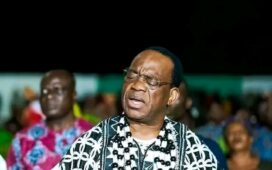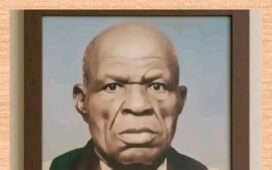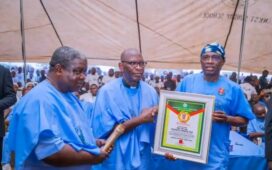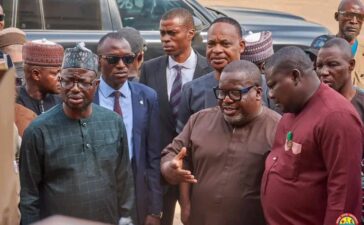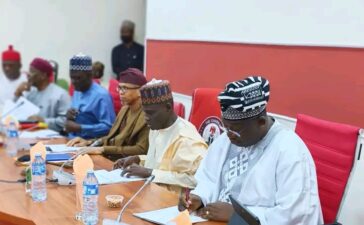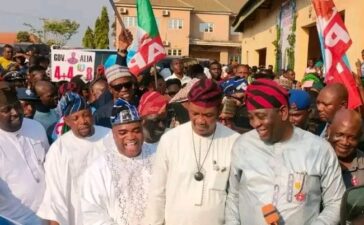Join our WhatsApp channel HERE for the latest Benue news and updates!
In a rare and powerful convergence of spiritual and political leadership, the Catholic Church in Nigeria has firmly rejected the narrative of a targeted religious genocide against Christians, declaring instead that both Christians and Muslims remain collective victims of the country’s spiraling banditry, terrorism, and general insecurity.
The position was articulated in a strongly worded communiqué issued by the Catholic Bishops’ Conference of Nigeria (CBCN) at the end of its latest plenary, and it echoes almost word-for-word the consistent public stance of Benue State Governor Rev. Fr. Hyacinth Alia since he assumed office in May 2023.
The bishops stated unequivocally that “no particular religious group is being singled out for extermination,” pointing out that the same criminal elements who attack churches in the North-West and North-Central also raid mosques, abduct Muslim clerics, and terrorize entire communities irrespective of faith. They described the violence as rooted in criminality, poverty, and state failure rather than a coordinated religious cleansing.
Governor Alia, himself a Catholic priest on leave of absence from active ministry, has repeatedly made the same argument, often to the irritation of some vocal Christian advocacy groups who insist on framing the killings as anti-Christian persecution. The governor has instead focused on building bridges across religious lines, appointing Muslims into sensitive positions and insisting that the real enemy is the armed criminal, not the man in the mosque.
The CBCN statement praised leaders like Governor Alia who have refused to allow the crisis to be hijacked for divisive ethno-religious propaganda. It particularly commended his call for unity, justice, and renewed security efforts while urging the federal government to treat the violence as a national emergency rather than a regional or religious problem.
The bishops also called for an immediate end to killings, kidnappings, and attacks on vulnerable communities, insisting that peace cannot be achieved through silence or delay. They demanded decisive action to halt the terror, protect lives, and restore dignity to farming communities that have been displaced in their millions.
By aligning the Vatican’s position, the Nigerian Catholic hierarchy, and Governor Alia’s administration on the same page, the Church has effectively drawn a line in the sand: the crisis in Nigeria is a human tragedy and a governance failure, not a holy war. Whether that unified message will calm the charged rhetoric on all sides remains to be seen, but for the first time in years, the loudest Christian voices in the country are speaking in remarkable harmony.




